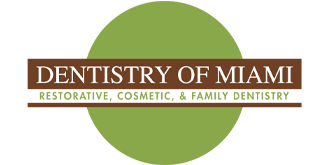Dental health and dental insurance matter, but for people who cannot afford to pay the high rates for private dental insurance companies, Medicaid provides another viable alternative to gain the health services they need. Unlike Medicare, which only applies to those 65 and older, Medicaid provides general health and dental services. Still, for people applying for this insurance, it can often confuse what it covers and how it works. If you’re wondering about the basics of Medicaid and what benefits you have for your oral health, then this small excerpt of how its benefits work.
Understanding Medicaid Dental Care
Medicaid encompasses more than just an insurance plan for your general health. This insurance program is issued individually by states, and the state determines what benefits you will receive according to your state’s legislation. For children, Medicaid is federally administered under the Children’s Health Insurance Program (CHIP) and is required for children under 21. Dental services for children include finding relief from infections, restoring teeth to health, and regular dental maintenance. Adults don’t qualify under this legislation and need to apply to Medicaid to receive dental benefits.
What do those benefits contain? It highly depends on what your state determines. Even with the expansion of Medicaid back in 2016, adults over the age of 21 will need to check with their state government website to learn about what Medicaid does and doesn’t cover. There are three classifications of benefits that adults can receive, and that includes:
Emergency Benefits
Emergency benefits only provide coverage for dental services considered to be emergencies. States such as Nevada, Arizona, Maine, and Florida provide for tooth extractions and emergency surgeries. Some states like Alaska include maximums of up to $1500 and include preventative care services such as cleanings, fillings, and crowns, including other exceptions to the rule.
Limited Benefits
Limited Benefits include certain dental services that aren’t considered emergencies, such as fluoride treatments, annual exams, tooth fillings, and x-rays. States such as Michigan, Louisiana, Indiana, and Hawaii have these plans and vary state by state.
Extended Benefits
Extended benefits include emergency, preventative, and restorative services, such as cleanings, tooth extractions, restorative surgery, and other dental care forms. Extended benefits include the largest array of dental services, with only a few exceptions to the rule, depending on the state. States such as Montana, Washington, Colorado, and Massachusetts have these types of benefits.
One essential point to remember is that with Medicaid, it is reported that only 38% of dental practices accept Medicaid, according to the American Dental Association. For those within Florida, the state provides emergency benefits under Medicaid, which includes limited dental exams, limited dental x-rays, pain management, sedation, extractions, and dentures. If you need a service approved of and didn’t know where to go from here, contact Dr. Eduardo Soloranzo at Dentistry of Miami, located in Miami, FL, for a consultation.


